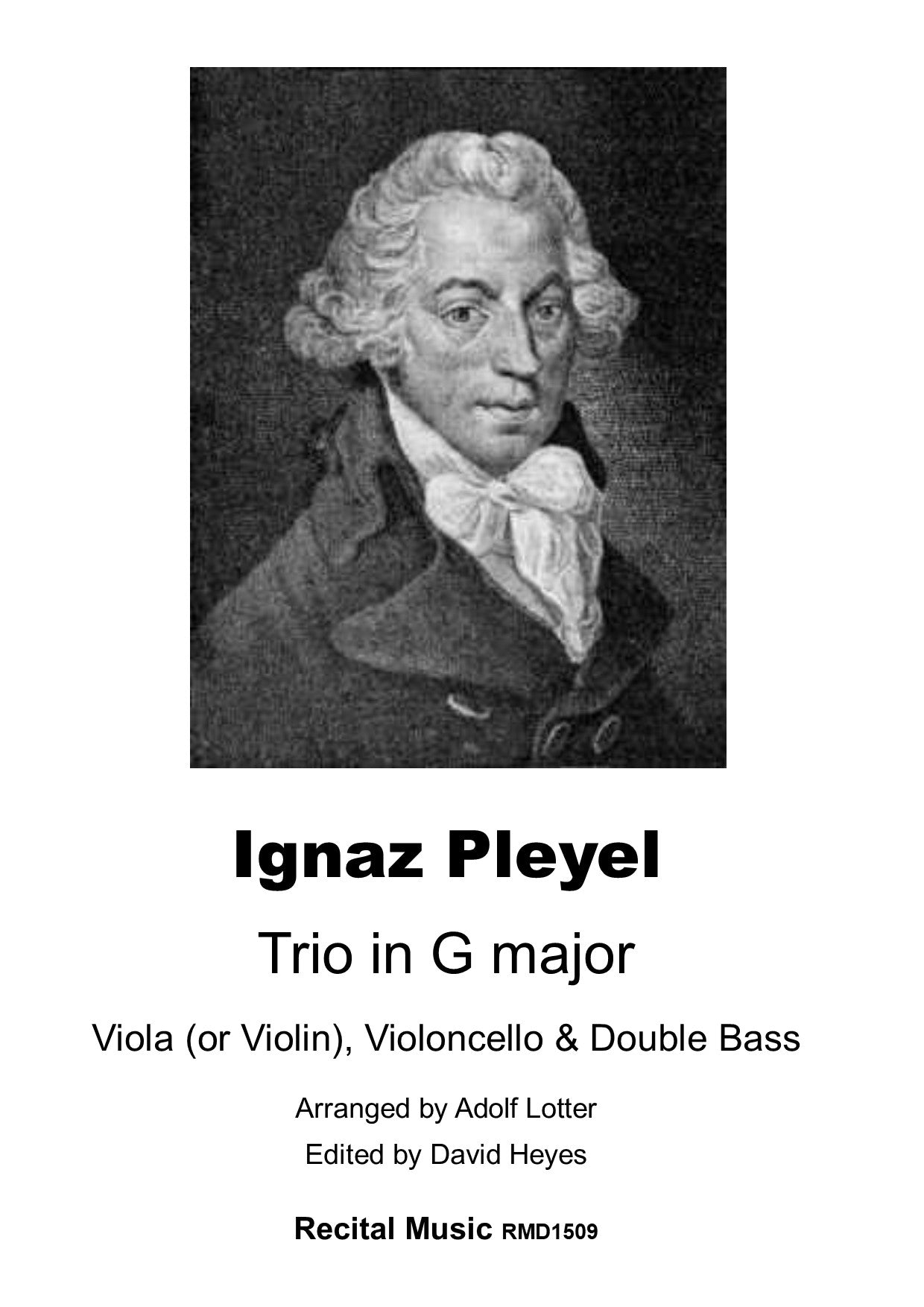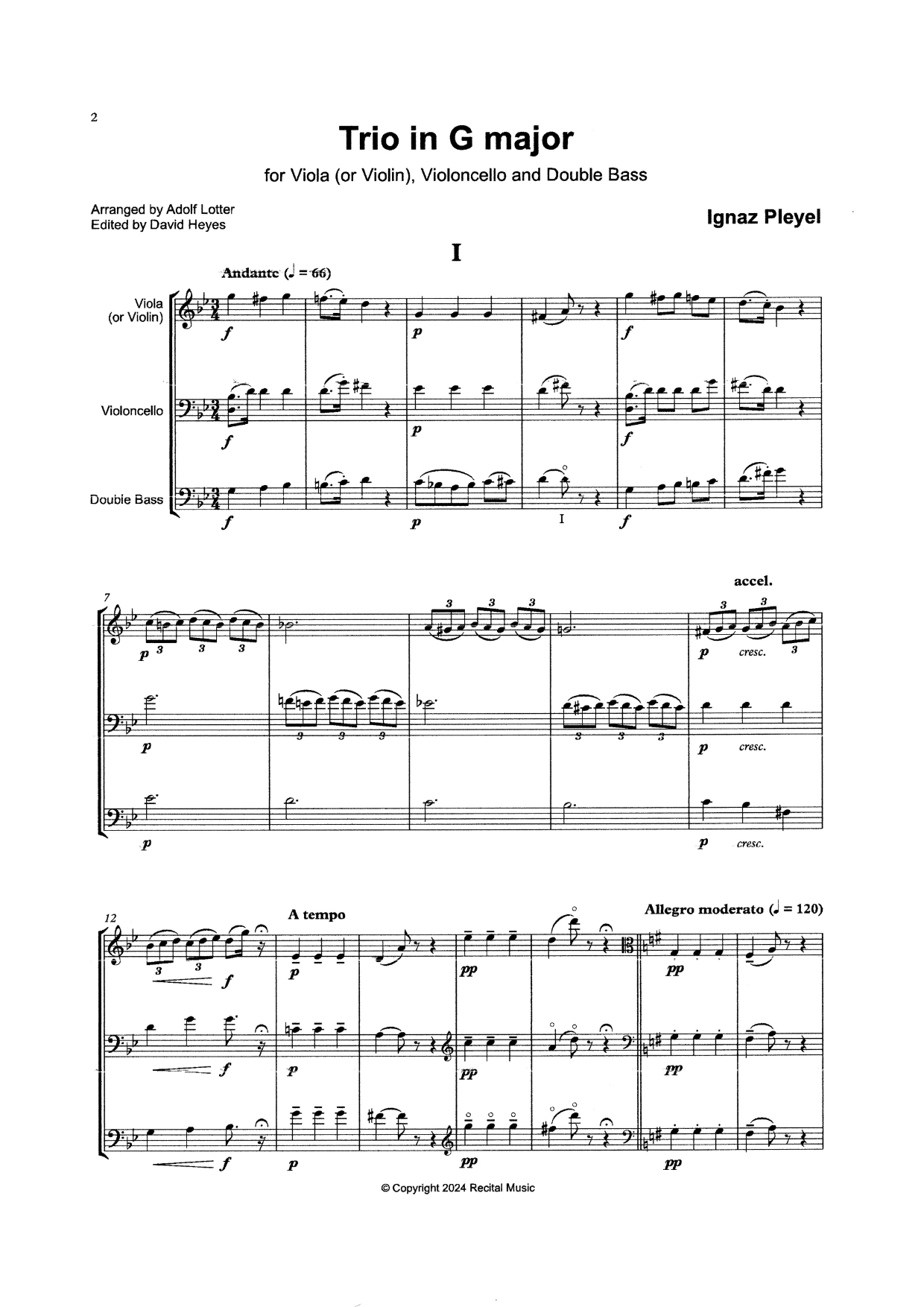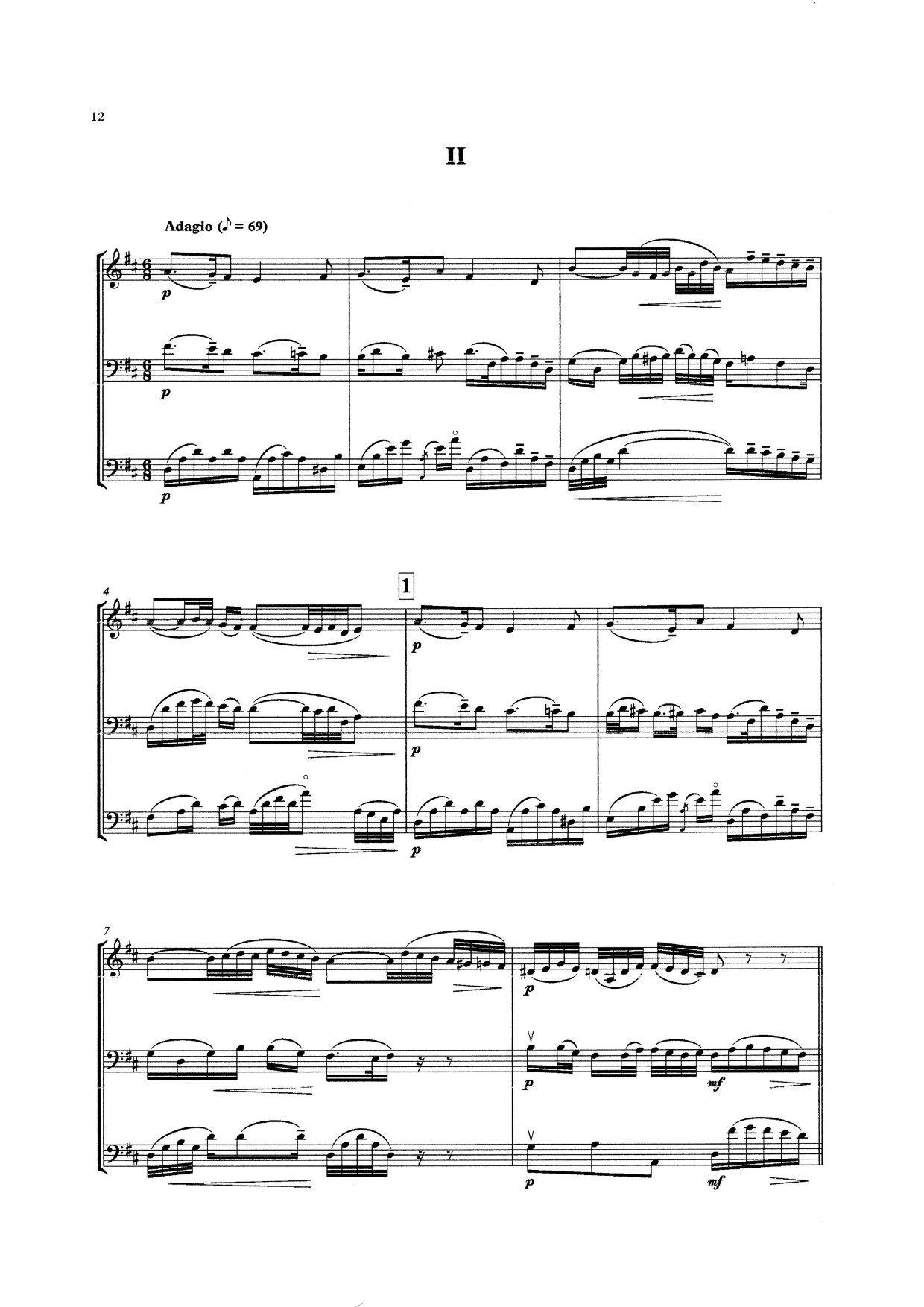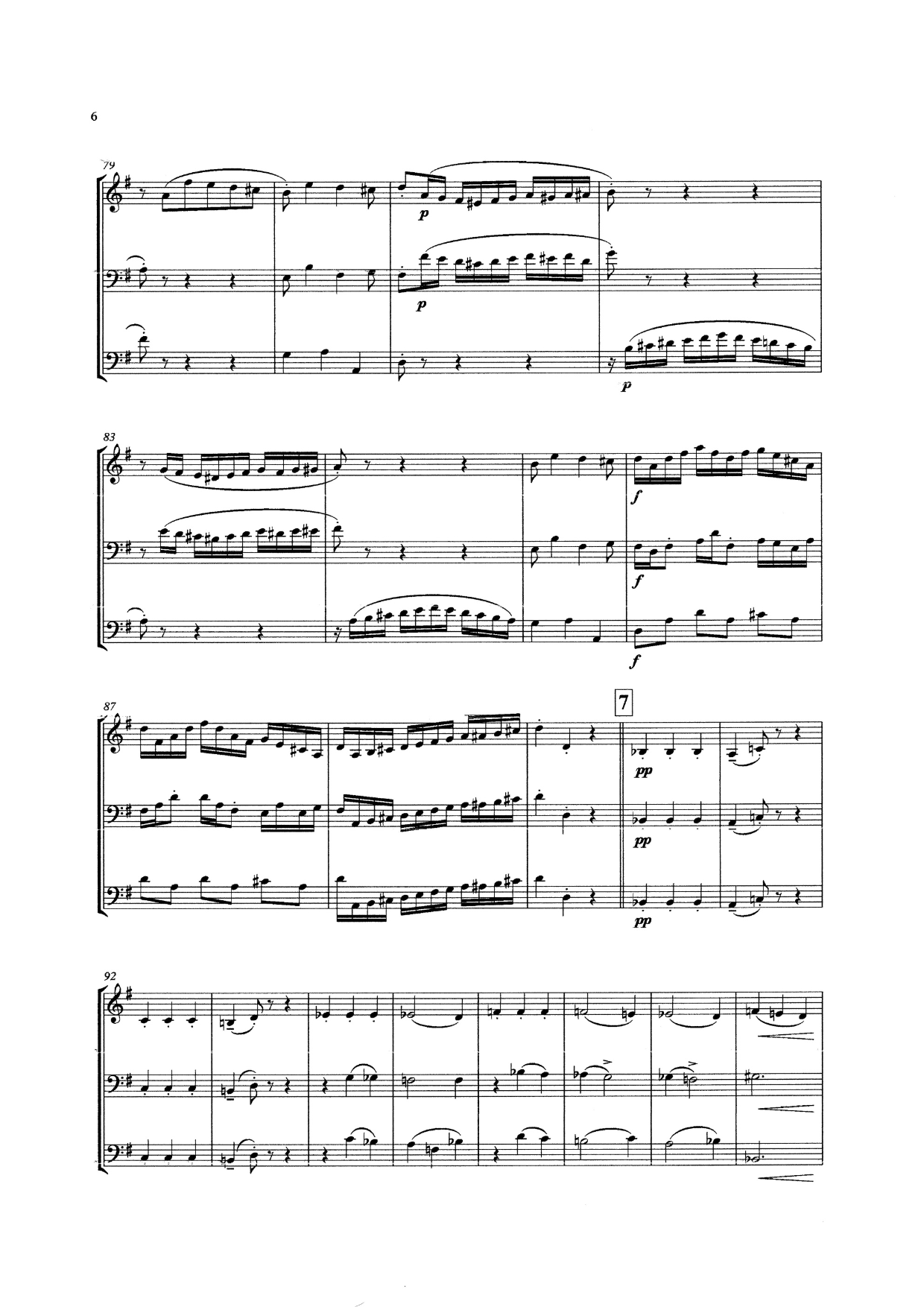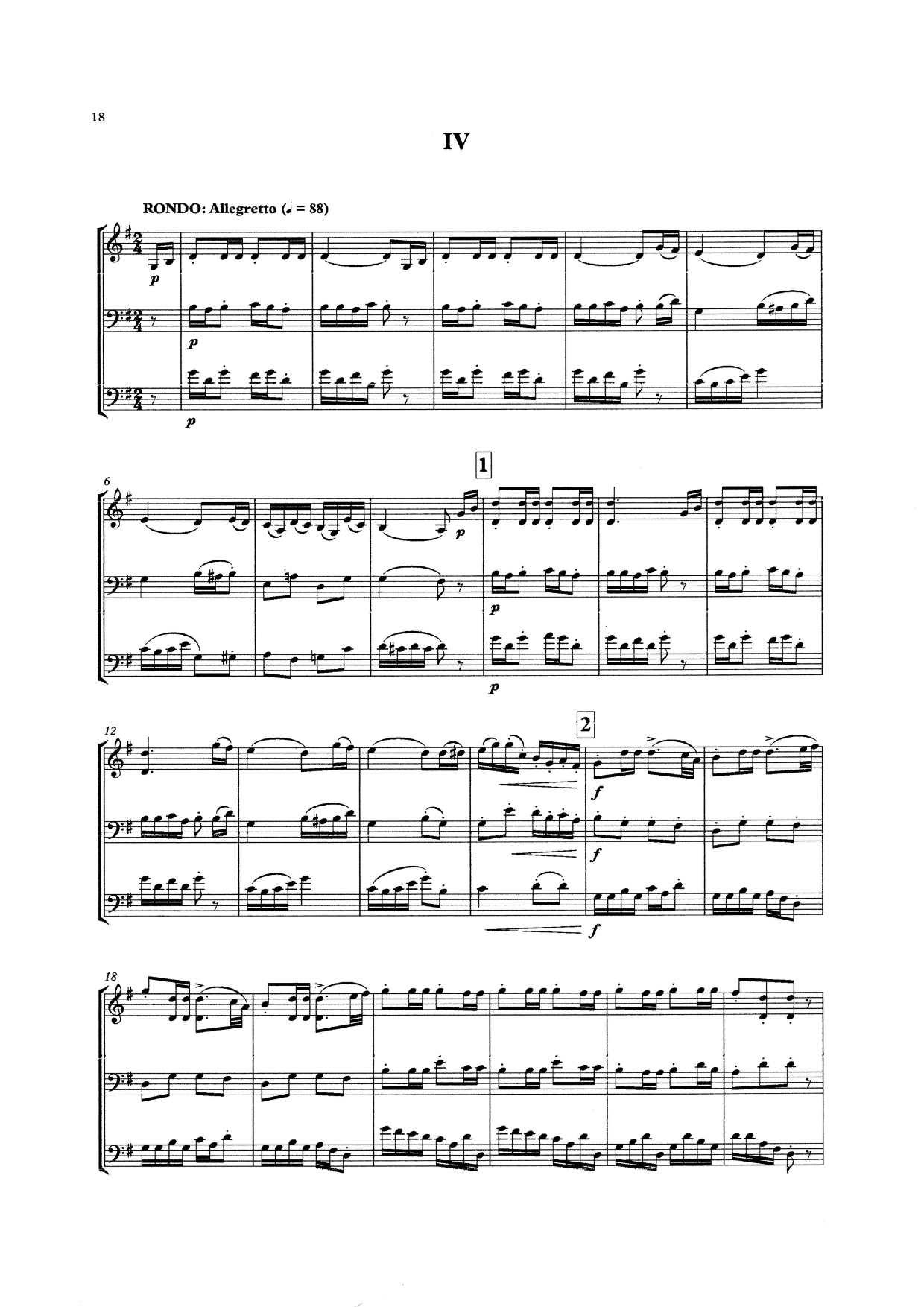David Heyes
Ignaz Pleyel: Trio in G major for viola (or violin), violoncello & double bass (arr. Adolf Lotter)
Ignaz Pleyel: Trio in G major for viola (or violin), violoncello & double bass (arr. Adolf Lotter)
Couldn't load pickup availability
About the Composition
Pleyel’s Trio in G major is a bright and vibrant work and was arranged for viola, violoncello and double bass by the Czech bassist-composer Adolf Lotter. In four contrasting movements, there are solos for each player, with the double bass part being far more than simply a continuo role, and this would be effective as recital repertoire or simply as fun and accessible music to play with friends.
A manuscript of the trio was discovered in Adolf Lotter's archive, acquired by David Heyes some years ago. On closer inspection, it is probably an elaboration of the original trio with tasteful and elegant embellishments and additions composed by Lotter.
The transcription is effective and accessible to the intermediate ensemble and this first edition includes parts for viola or violin.
Edited by David Heyes
About the Composer
Ignaz Pleyel (1757-1831) was an Austrian composer, music publisher and piano builder, and studied composition with Joseph Haydn. He was a prolific composer, writing at least 42 symphonies, 70 string quartets and several operas and, although famous and successful in his own time, his music is unjustly neglected today. Pleyel worked in Italy and London, lived and worked in Strasbourg for a number of years, eventually settling in Paris in 1795, where he founded a music shop and publishing house.
The popularity of his music in his own lifetime probably made him one of the most famous composers throughout Europe and beyond, and a Pleyel Society was founded in the whaling port of Nantucket (Massachusetts, USA) in 1822. His music has been described as “of exceptional quality, harmonically rich, structurally inventive and with highly original themes.!
Adolf Lotter was born in Prague on 4 December 1871 and studied double bass with František Černý, and composition with Antonín Dvořák, at the Prague Conservatoire. He lived in London from 1894, until his death in 1942, and quickly established himself as one of the leading bassists of his generation, performing with many of the famous conductors of the day including Sir Henry Wood, Richard Strauss, Weingartner, and Sir Thomas Beecham. Lotter was a member of the Queen's Hall Orchestra for over thirty years (1898-1930), becoming Principal Bass in 1911, and also played with the London Symphony Orchestra, London String Players, Guildford Symphony Orchestra, and Glyndebourne Festival Orchestra (1935-36).
In 1899 Lotter was appointed Musical Adviser and Editor of Hawkes & Son (London), who published many of his orchestral works and arrangements for the next forty years. He composed and arranged over seventy works for orchestra, military band, string orchestra or piano, mainly in a light and popular style.
